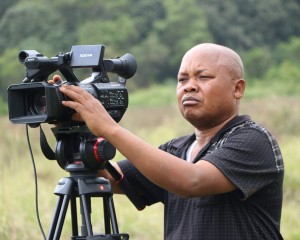
Patrick Kimanthi is a videographer and photojournalist who works to cover Climb For Justice Campiagn.
Patrick has successfully hiked Eburru Forest.
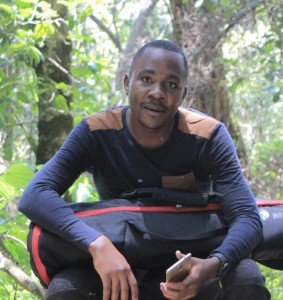
Apopo is a sports journalist and doubles as a human rights activist. He covers the campaign through mainstream media and tells the story to the world about the campaign and its purpose.
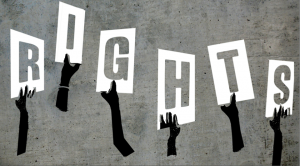
The Centre for Applied Human Rights (CAHR), through a grant from the Open Society Foundations, has set up a fund – Arctivists – to support activists and artists across the world responding to the outbreak of Covid-19 and its implications for human rights defenders, activism, and shrinking civic and political space. Paired activists and artists are able to apply for up to £3,000; it is envisaged that most grants will be for between £1,000 and £2,000.
The outbreak of Covid-19 has put a strain on governments around the world and is adversely affecting particularly vulnerable communities, activists and human rights defenders, including by further shrinking existing civic and political spaces. For example, in response to the Covid19 emergency, the Hungarian Parliament recently granted PM Viktor Orban the power to rule by decree, in a country that has already witnessed considerable restrictions on democratic spaces; in Colombia, shifting governmental priorities in the wake of the Covid-19 emergency have left rural and indigenous communities unprotected, thus facilitating the targeting of their leaders by illegal armed groups; Chinese activists who denounced the government’s approach to tackling the pandemic have been incarcerated for subversion; Algerian civil society organisations have denounced a government clampdown on anti-regime protesters taking place while the world is distracted by the pandemic. These are only some of the challenges that have resulted from the emergency framework adopted by several governments in response to the spread of Covid-19.
At the same time, the emergency has bred new responses, and forms of both local and global solidarity, that either build on existing, positive official or unofficial responses to the virus or compensate for a lack thereof. For example, media activists in Brazil, Perú, South Sudan and elsewhere are sharing public health information in their communities, in the form of comics, videos or cartoons; civil society organisations across Latin America are encouraging human rights workers to participate in therapeutic sessions where they can share their feelings through art, whether in the form of artefacts, stories or music.
Against this backdrop, and the obstacles to accessing reliable information regarding how responses to the virus are affecting civil society, synergies between activists and artists are more important than ever. For example, art in all its forms amplifies activism and facilitates conveyance of key messages and information, which may compensate for the lack or manipulation of official narratives. Where civic spaces have shrunk, art can provide an alternative venue for activists to broaden their movements and support their work despite curtailed democratic spaces. The imaginative spaces that art offers can bypass traditional barriers that governments may erect in an attempt to stymie civil society activism, for example, by conveying ambiguous or subtle messages. We recognise that the many activists are artists, and vice-versa – as such we will be flexible in how we apply these categories.
CAHR recognises that collaborative endeavours between activists and artists have the potential to provide innovative responses to the current Covid-19 emergency, whether in a reactive, therapeutic or imaginative form. We seek applications from activists and artists to address one or more of the following three objectives:
Document, monitor and analyse events in real time.
Reflect on wellbeing, both your own and that of your communities/ organisations.
Go beyond a reactive response to imagine new, alternative futures. This futureoriented work could assess how crisis and disruption open up new possibilities for creativity and innovation, as well as for regressive and repressive measures, and/or build on positive responses to the virus itself (local and global forms of solidarity).
Activists could write a diary, make a weekly podcast, write a blog, etc. Artists could work in their chosen media, to respond to the activist’s contribution and/or to wider developments in their country/region. We are open to innovative suggestions on the nature of the collaboration between activists and artists.
Activists and artists should apply by presenting a single collaborative project proposal that does not exceed two pages in length and includes the following:
A brief profile/bio of the artist(s) and activist(s) involved.
A brief description of the project/programme of work, highlighting in particular how it responds to the Covid-19 emergency and its links to activism and civic/political space; which of the 3 objectives set out above it responds to; any safety, security and ethical concerns, and how these will be addressed; whether it builds on existing initiatives or is a new collaboration, and through which media/methodologies it will be carried out.
The main beneficiaries and audiences of the project/programme of work and why the methodology/medium is appropriate for the local context.
Details of additional sources of funding or contributions.
The envisioned output(s) of the project/programme of work, for both the activist(s) and artist(s).
The amount of funding you are applying for, and a brief justification for the specific amount requested in the form of a basic budget and justification of resources (subsistence/salary costs can be included). It is envisaged that most grants will be for between £1,000 and £2,000. Additional justification will be required for larger awards, up to £3,000, for example, that the application involves groups of activists and/or artists.
One appendix featuring examples of artistic work can be included in the application. The appendix can be additional to the 2-page application.
While applications need to be in English, activist and artist outputs which are in part or completely in local languages are welcomed.
Clear description of the link between Covid-19, and responses to the virus, on the one hand, and threats to activism and civic/political space on the other, affecting either the artists/activists making the application and/or their country.
Evidence of a strong working relationship between the artist(s) and activist(s).
Feasibility and relevance of the project in challenging and difficult circumstances (including consideration of safety, security and ethics).
Evidence of innovation and creativity – notwithstanding point 3) above, we are willing to take risks with this fund to support work that is provocative and challenging.
The activist(s) and artist(s) are expected to provide a timeline for outputs in their application, between now and 31 December 2020. The artist(s) and activist(s) are also expected to submit a short joint report (2 pages) detailing the activities undertaken as well as all expenses incurred, by 31 January 2021. All inquiries and submissions should be directed to Piergiuseppe Parisi (piergiuseppe.parisi@york.ac.uk) and Pippa Cooper (pippa.cooper@york.ac.uk).
There is no fixed deadline for proposals – applications will be considered on a rolling basis over the coming months. We will endeavour to get back to applicants within 2 weeks. Successful proposals will be selected by a panel that will include CAHR staff and associates from a variety of backgrounds.
Copyright for the outputs remains the sole and exclusive property of the artist and the activist. Terms of reference/contracts will provide CAHR with the limited right to reproduce, publicly display, distribute and otherwise use the expected outputs in relation to CAHR’s work, and as an example of work commissioned through the Open Society Foundations’ grant. Copyright will be addressed in terms of reference/contracts developed with successful applicants.
CAHR will discuss anonymity, confidentiality and other ethical issues with artists and activists as they arise in relation to specific projects.

CALL FOR APPLICATIONS: DEVELOPMENT OF E-LIBRARY APPLICATION FOR HUMAN RIGHTS DEFENDERS
TERMS OF REFERENCE
Introduction and Background of the Organisation
The Defenders Coalition is the National Coalition of Human Rights Defenders, a national organization incorporated in the Republic of Kenya as a Trust. Its mission is to champion the safety, security and wellbeing of Human Rights Defenders (HRDs). Established in 2007, Defenders Coalition is the only national organisation that works primarily for the protection of HRDs.
Defenders Coalition Strategic Plan 2020 – 2025 outlines the vision, ambition and strategies for realizing the same. Our vision is a society founded on human rights. Our mission is to champion the safety , security and well-being of human rights defenders.
The Coalition takes a holistic approach in its work geared towards a safe and secure environment for HRDs through an established rapid response mechanism, capacity building and knowledge management structures. To address concerns of HRDs is the core business of the coalition and thus works towards increasing their capacity in safety and security as well as their knowledge in the policy and legal environment within the human rights context as well as inclusion of technology. The Coalition seeks to effectively reposition itself in the rapidly changing environment especially in technology.
Objective of the Assignment
Defenders Coalition seeks to build a reliable repository of information on the management of human rights defenders physical and information security that is accessible online by human rights defenders. The digital resource centre will not only address the capacity needs of HRDs but also individuals wanting to access information on trends on human rights and HRDs rights violations for research and knowledge building.
Various information and training materials will be converted and stored in digital formats at the Defenders Coalition Digital Library. The centralization and digitization of materials and information regarding human rights and the situation of human rights defenders in the country will allow HRDs to acquire knowledge in various relevant subject matters, more so how to manage their security as they conduct their work. The information will also be relevant to advocacy, policy development, academia and service provision actors like lawyers, doctors and counselors.
The overall objective of the assignment is to establish a digital library that will support the Defenders Coalition capacity building strategy in ensuring that information required by HRDs is well stored in a digital library for quick access and ensuring that the digital security trainings offered by the Coalition are transferred to digital formats that are easily accessible by HRDs everywhere. The platform will also host online digital security training formats and tips on the safe use of digital platforms and tools for Human rights defenders for use by trainers and trainers of trainers (TOTs). The project therefore seeks to capitalize on the growing telephonic and other online connectivity that are turning the country, indeed the globe into one digital village.
Methodology
The design and development of the e-Library App will be conducted by an external consultant who will lead the project team and will work under the supervision and support of the Defenders Coalition’s Head of Partnerships and the Executive Director. The consultant is expected to develop a technical proposal detailing methodology and framework/design of the e-Library App, taking into consideration the local context. The consultant will develop, build and design and maintain e-Library App and handle all the source code and data used. The sample design and proposed development tools will be discussed and approved by the Defenders Coalition team before the commencement of the development of the Application.
The Expected outputs and Outcome
the information needed by HRDs is well stored in a digital library for quick access
Transfer of available information into the platform
coalition are transferred to digital formats that are easily accessible by HRDs
Profile of Consultant(s)
The consultant(s) should have the following qualifications/expertise:
Modalities of remuneration
The consultant shall present to the Defenders Coalition both financial and technical proposal for the project. The technical proposal must cover all important aspects of the solution and the financial proposal should cover professional and support cost.
Application Procedure
Interested applicants who meet the job requirements and qualifications and with the right personal attributes are invited to complete and submit the following:
Duration and Reporting
This assignment will be completed within two months and the commencement date is expected to be 6 May 2020. A breakdown of how these days shall be utilised shall be reflected in the schedule of work to be presented to the Defenders Coalition by the consultant.
All applications should be sent to Defenders Coalition info@defenderscoalition.org copied ict@defenderscoalition.org by Thursday, April 30th 2020. Quote “Defenders Coalition e-Library App” in the subject line of your email.
Disclaimer
Defenders Coalition is an equal opportunity employer, committed to ensuring diversity, inclusivity and gender equality within our organization and work. Defenders Coalition, thus will recruit/award the consultancy to the most qualified person /company irrespective of race, marital status, sexual orientation, religion, gender, ethnicity. Only successful candidates will be contacted.
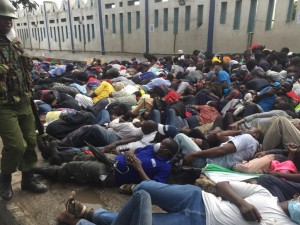
Police Must Stop the Use of Excessive Force while Enforcing the Curfew Order
March 27, 2020
The civil society’s Police Reforms Working Group, comprised of twenty national human rights organisations, condemn the unnecessary and excessive use of force by Kenya Police Service officers yesterday at the Likoni Ferry Crossing, Mombasa. The police actions completely betrayed the specific responsibility bestowed upon them by the President; to facilitate orderly passage of commuters on the Likoni crossing.
Alongside elected leaders and members of the public, we were horrified by the excessive use of police force contrary to the functions of the Police laid out in Article 244 of our constitution. Police indiscriminately threw teargas, frog marched and beat up members of the public trying to get home in time for the curfew.
We also condemn the assault of Nation Media Group Journalist Peter Wainaina by a uniformed police officer during the operation. We remind the Police that journalists and media houses are among the essential services exempted from the curfew order as per the Schedule published by the Ministry of Interior.
It is unbelievable that this violence took place two hours before the designated curfew time of 7.00pm. It is essential that Kenyan law and international human standards are respected. Police bear a duty to maintain public order and enforce the law. They may only use force when strictly necessary. Where the use of force is unavoidable, it must also be done with restraint.
We continue to receive testimonies from victims, eyewitnesses and video footage showing police gleefully assaulting members of the public in other parts of the country. We note that in most instances, few posed no immediate threat to the police officers or others. The use of force and beatings was unnecessary and unlawful.
One day before the Likoni Ferry fiasco, the National Police Service Inspector General issued clear instructions to his officers. These instructions clearly state his commitment to hold sub-commanders accountable for any police actions that lead to congestion, crowding or violate social distancing rules. We ask him to honor his own word by disciplining the Sub-Commander in charge of yesterday’s fiasco. We also call upon Officers Commanding Station (OCSs) to be guided by the Bail and Bond Policy Guidelines as they deal with petty offenders at the station level.
We further call upon the National Police Service Inspector General to restrain his officers from using teargas to avoid potential spread of COVID-19. Hundreds were forced to cough, vomit, spit and touch their faces to wipe away tears and unblock their mouths and noses. If the operation was supposed to protect people from spreading the virus, the operation achieved the exact opposite. It is imperative that Ministry of Health guidelines on prevention of the spread of COVID-19 are followed by Police at all times.
Police officers appear confused on who is included in the categories of critical and essential services on the first night of the curfew. We have testimonies from suppliers and trained medical practitioners who experienced intimidation and threats of arrest as they tried to provide services during the curfew. Their free movement must be protected.
Lastly, we call upon the Internal Affairs Unit of the National Police Service, the Independent Policing Oversight Authority and the Kenya National Commission for Human Rights to investigate all reports of excessive use of force and unlawful policing with a view to holding perpetrators individually responsible. We encourage members of the public to immediately report any intimidation, extortion or violence to these agencies. Public order management must not be used to inflict pain, fuel panic and fear at this at this difficult time.
We shall intensify our monitoring of the curfew in the public interest.
This statement is signed by the Law Society of Kenya – Mombasa and members of the Police Reforms Working Group, an alliance of several organisations committed to professional and rule of law policing. They include the Social Justice Centres Working Group, International Justice Mission, Independent Medical Legal Unit, Kenya Human Rights Commission, Defenders Coalition, Haki Africa, Amnesty International Kenya, International Centre for Transitional Justice, The Kenyan Section of International Commission of Jurists (ICJ Kenya), Usalama Reforms Forum, Federation of International Women Lawyers (FIDA-K) Legal Resources Foundation, Transparency International Kenya, Shield For Justice, Wangu Kanja Foundation, Peace Brigades International and Katiba Institute
Photo Credit: Daily Nation
PRESS STATEMENT BY THE NATIONAL VICTIMS AND SURVIVORS NETWORK, MISSING VOICES COALITION, MOTHERS OF VICTIMS AND SURVIVORS NETWORK AND THE KENYA TRANSITIONAL JUSTICE NETWORK ON THE COMMEMORATION OF THE INTERNATIONAL DAY FOR THE RIGHT TO THE TRUTH CONCERNING GROSS HUMAN RIGHTS VIOLATIONS AND FOR THE DIGNITY FOR VICTIMS
24 MARCH 2020
Kenya, like the rest of the world is navigating through an uncharted territory as we grapple with and impede the spread of the coronavirus, COVID-19. While we welcome the measures and mechanisms put in place by the government of Kenya, we note the following human rights concerns:
▪ The vulnerable and marginalized populations, in particular women and girls within informal settlements, and housing with population density are experiencing immense challenges in accessing adequate and quality water, sanitation, and adequate food;
▪ Security and safety for women and girls is threatened and not guaranteed as they seek scarce water for their households in a bid to comply with public health instructions of mitigating COVID-19;
▪ Continued challenges and barriers in accessing affordable, adequate and quality health care services in the already constrained health care system;
▪ Arrests and extortion of members of public by police officers who are taking advantage of lack of awareness of what is expected of them in respect of COVID-19; and
▪ Threat to, and occurrences of sexual and gender-based violence, in part driven by loss of livelihood, hence contributing to already worrying incidents of this violence, especially directed at women and girls.
As we point out these human rights concerns, we highlight that today marks an important international Human Rights Day that commemorates The Right To The Truth Concerning Gross Human Rights Violations And For The Dignity For Victims. We, the victims and survivors of the following gross human rights violations namely: summary executions, sexual violence during electoral periods in Kenya, enforced disappearances, and torture, together with our families, supporters, advocates and friends are commemorating this day to: –
Honour the memory of victims of gross and systematic human rights violations and promote the importance of the right to truth and justice; and
Pay tribute to Kenyans who have devoted their lives to, and lost their lives in the struggle to promote and protect human rights for all.
Collectively, we are concerned by the lack of political and good will to address gross human rights violations a practice that only perpetuates a culture of impunity, systematic exclusion and socio-economic inequalities that continue to spread to other aspects of our lives as Kenyans.
We, the victims and survivors of gross human rights violations in pursuit of truth and justice took part in the Truth, Justice and Reconciliation Commission (TJRC) process by submitting our statements, memoranda and by taking part in the hearings. We have subsequently and consistently petitioned various government agencies including the Office of the Attorney General and Senate’s Justice and Legal Affairs Committee calling for the urgent adoption and full implementation of the TJRC report. We are concerned by the protracted delay and failure by the Government to fully adopt and implement recommendations of the TJRC Report especially as regards reparations of victims. To-date majority of survivors and victims of these gross human rights violations contend with medical and psychological harm, loss of loved ones, loss of livelihood, stigma and fear.
In 2007/08 post-election period approximately 900 sexual violence were documented by the Commission of Inquiry into the Post-Election Violence (CIPEV) and in a sad turn of events during 2017 electoral period approximately 201 sexual violence were documented in 11 counties by the Kenya National Commission on Human Rights. The survivors of electoral related sexual violence of which the majority are women including those who bore children out of their rape ordeal are particularly perplexed that the government gazetted the TJRC report excluding its volumes IIA and IIC on sexual violence and other gross human NVSN
Page 2 of 2
rights violations. The vagaries, impact and consequences of this particular violation remain unrecognized and unresolved physically, socially, emotionally and are still felt to date,. Particularly when it is noted that these perpetrators that include police officers have not been held accountable.
Survivors of electoral related sexual violence victims filed constitutional cases numbers Constitutional Petition No. 273 of 2011 (CP 273/2011); Constitutional Petition No. 122 of 2013 (CP 122/2013); and, Constitutional Petition No. 15 of 2014 seeking redress that occurred during electoral periods. Unfortunately, these cases remain inordinately delayed more than 8 years.
We sadly continue to note occurrence of enforced disappearance and summary execution. In 2019, a report released by the Missing Voices Coalition disclosed that Kenyans witnessed 107 summary execution of fellow Kenyans by police officers. Most of these victims of summary execution are young Kenyan men from informal settlements.
In commemoration of this International Day For The Right To The Truth Concerning Gross Human Rights Violations And For The Dignity, we demand the following:-
1. The truth concerning H.E President Uhuru Kenyatta’s directive of March 2015 to the National Treasury for the establishment of the Kshs. 10 billion Restorative Justice Fund for purposes of healing and reconciliation to the victims of historical injustices. Further, the truth about what became of the Draft Policy and Regulations that were developed in partnership with the office of the Attorney in 2018 for purposes of anchoring the Restorative Justice Fund under the Public Finance Management Act No. 18 of 2012. We demand for the immediate and comprehensive reparations for all victims and survivors of gross human rights violations including their families from the Restorative Justice Fund (that should be increased according to the needs and numbers of the victims and survivors).
2. The truth behind the delay in full operationalization of the Victim Protection Act No. 17 of 2017 that provides for assistance and protective measures to victims of crime. We demand the urgent full operationalisation of this Act.
3. Truth as to why it has taken 2 years to fully operationalise the Prevention of Torture Act No. 12 of 2017 and the National Coroners Service Act No. 18 of 2017, which are useful human rights tool to curb extra judicial executions and torture by rogue police officers. We demand for immediate full operationalization and implementation of these laws.
4. Immediate adoption and full implementation of the TJRC report and its recommendations.
5. Prioritisation and the finalisation of court cases No. 273 of 2011 (CP 273/2011); No. 122 of 2013 (CP 122/2013); and, No. 15 of 2014.
6. Honouring of court awards and full compensation to the victims of Nyayo House Torture Chambers who have successfully sued the state and are yet to be paid.
Finally, during this perilous times of the Corona Virus (COVID-19), we urge the Government of Kenya to institute enough measures to contain and prevent the further spread of the killer virus and in so doing to observe, protect and promote human rights for all Kenyans regardless of their socio-economic status.
Thank you,
NATIONAL VICTIMS AND SURVIVORS NETWORK,
MOTHERS OF VICTIMS AND SURVIVORS NETWORK
MISSING VOICES COALITION
THE KENYA TRANSITIONAL JUSTICE NETWORK
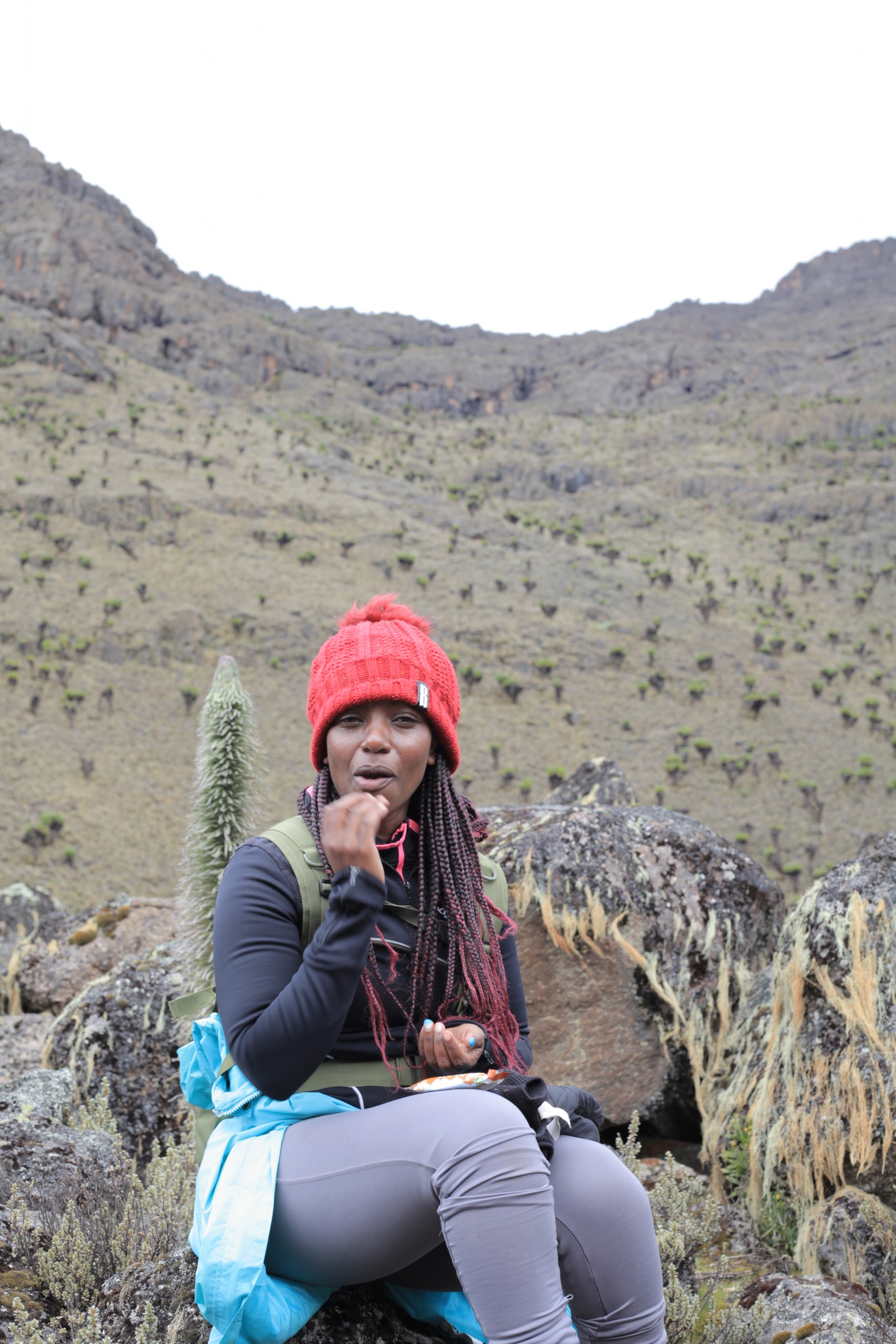
Evelyne is a fitness enthusiast and human rights defender.
Evelyn successfully summited Elephant Hill and Point Lenana on Mount Kenya
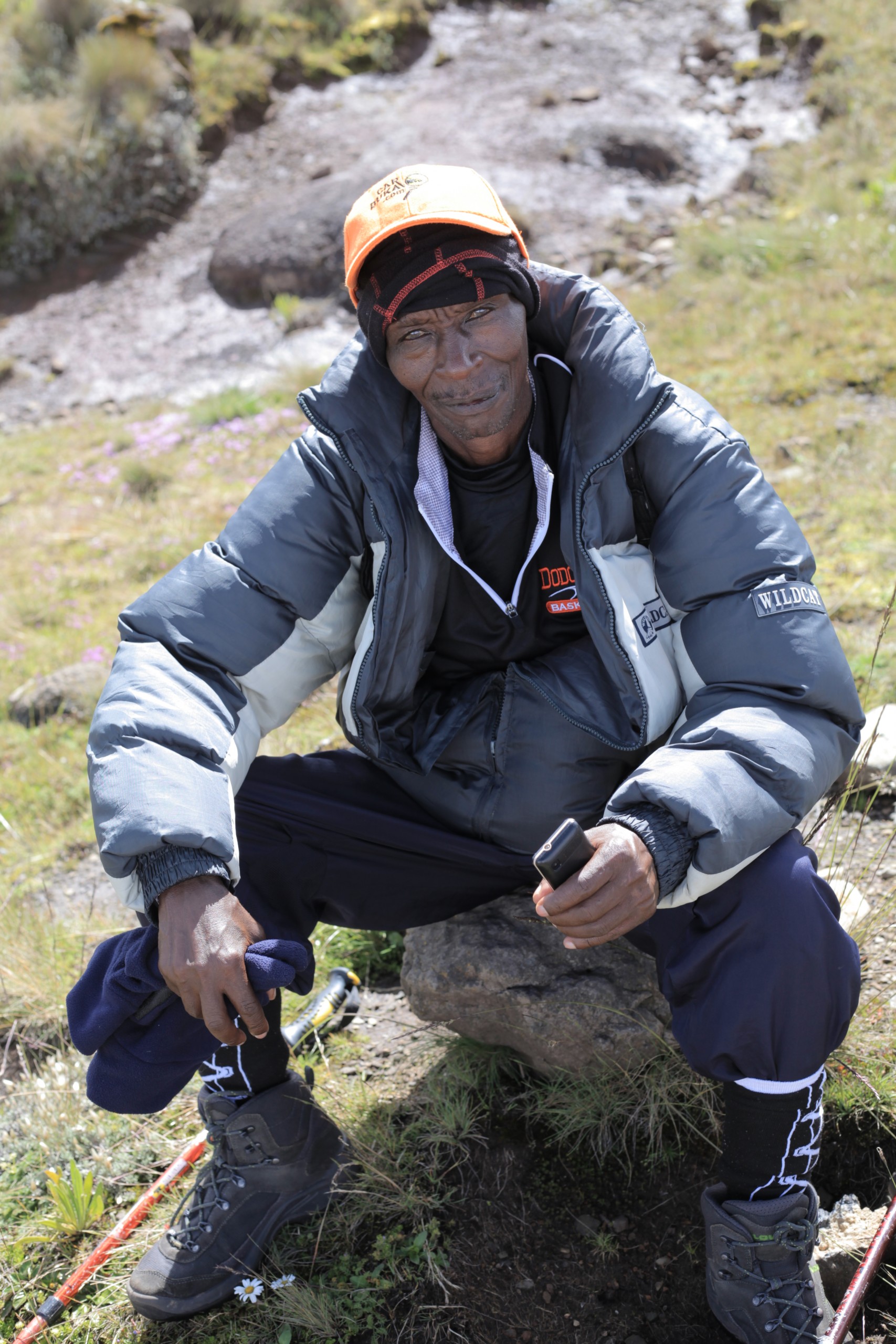
James is a land rights defender and social justice champion from Makuyu area, Muranga County.
He is the oldest climber of all Climb For Justice actvities so far. James successfully summited William Hill and Point Lenana on mount Kenya.
Muthoni is a human rights defender who works to protect the rights of women in Kenya.
Muthoni has successfully summited Elephant Hill and Lenana Point on Mount Kenya.